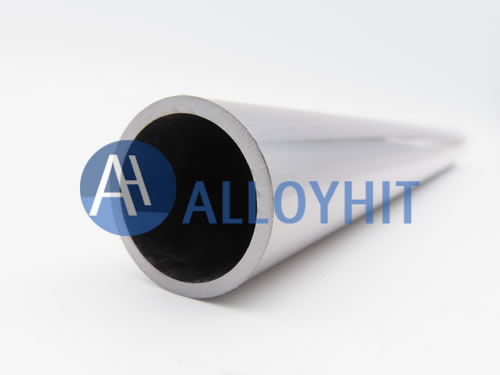
Size of Ta10W Tube/Pipe
| Forms | Standard | Diameter range /mm |
| Ta10Wseamless pipe and welded pipe | ASTM B521 | <90 |
Grades and Standards of Ta10W Tube/Pipe
| Forms | Grade | Standard |
| Tubes | RO5255 | ASTM B521 |
Mechanical Properties of Ta10W Tube(annealed state)
| Tensile Strength /psi(MPA)≥ | Yield Strength /psi(MPA)≥ | Elongation (gauge length 25.4mm)/%≥ |
| 70000(481) | 60000(414) | 15 |
Processing of Ta10W Tube
Ta10W Tubes bars are mainly processed by extrusion, forging, rolling and drawing; they are usually supplied in the crystallized annealed state, the stress relief annealed state and the cold worked state. The purpose of annealing is to bring the material to a recovered or recrystallized state, thereby restoring the plasticity of the material to facilitate further processing or to achieve the required flattening properties.
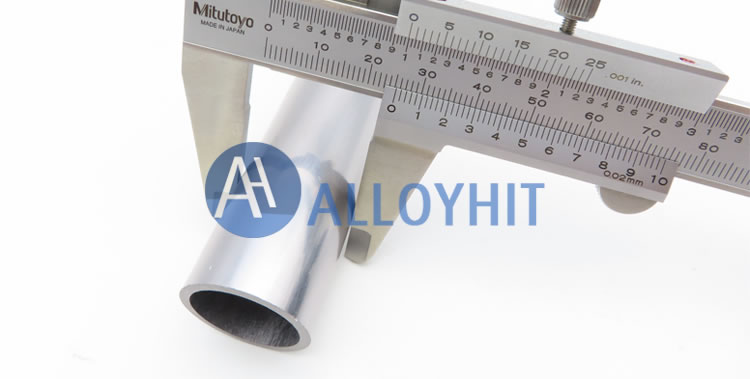
Specifications and Tolerances of Ta10W Tube
| Outside diameter/in(mm) | Diameter tolerance①②/in(mm) | Wall thickness allowable deviation③/% |
| D<1(25.4) | ±0.004(±0.102) | 10 |
| 1<D<1.5(25.4< D<38.1) | ±0.005(±0.127) | 10 |
| 1.5<D<2(38.1<D<50.8) | ±0.006(±0.152) | 10 |
| 2<D<2.5(50.8<D<63.5) | ±0.007(±0.178) | 10 |
| 2.5<D<3.5(63.5<D<88.9) | ±0.010(±0.254) | 10 |
1) These allowable diameter tolerances are only for pipes that have been rolled but not extruded, reamed, bent, polished, etc.
2) Ovality refers to the maximum and minimum outside diameters measured at any cross-section of the tube.
3) After the smallest pipe wall is determined, the tolerances should all be positive and should be twice the values in the table.
Bending requirements:
| Length/ft(m) | The maximum radian/in(mm) | Length/ft(m) | The maximum radian/in(mm) |
| 3<L≤6(0.91<L≤1.83) | 1/8(3.2) | 6<L≤8(1.83<L≤2.44) | 3/16(4.8) |
| 8<L≤10(2.44<L≤3.05) | 1/4(6.4) | L>10(L>3.05) | 1/4in/any 10ft(2.1 mm/m) |
Comparison of Ta10W seamless tubes and Ta10W welded tubes
| Advantages | Disadvantages | Description | |
| Ta10W welded tubes | 1. The wall thickness is uniform and the inner surface quality is good | 1. Poor flexibility, it is not suitable to produce products with many specifications and small batches | Suitable for the production of large batches of products. |
| 2. High production efficiency and low cost | 2. Welds are often the weak link | ||
| 3. It is easy to produce large diameter pipes | 3. It is difficult to clean the weld | ||
| 4. Short production cycle | 4. The ovality is not easy to control | ||
| 5. Product quality is easy to control | 5. High requirements for the dimensional accuracy of the strips used | ||
| Ta10W seamless tubes | 1. It can produce small-sized pipes and capillary pipes | 1. The uniformity of wall thickness is difficult to control | Suitable for the production of products with small batches and many specifications. |
| 2. Good flexibility, suitable for producing products with small batches and many specifications | 2. Long production cycle and low yield | ||
| 3. The performance of each part of the pipe is uniform | 3. The equipment is complex and the investment is large | ||
| 4. It is difficult to produce large diameter pipes |
Heat treatment of Ta10W Tube
Ta10W has excellent plasticity. Most tantalum alloys can be subjected to deformation processing such as punching, rolling, drawing, spinning, bending, and extrusion at room temperature. The total processing rate between two annealings can reach 98%, and the processing rate of passes is ≤60% . Ta10W is easily oxidized when heated in air, and cannot be hot-pressed in an unprotected state. Thermal processing (such as forging, extrusion, etc.) must be coated with an anti-oxidation coating, or carried out in a vacuum (vacuum degree ≤5×10-²Pa) or in an inert gas protective atmosphere (generally not argon).
Recrystallization annealing specification: In the vacuum state, Ta10W is heated to the protection temperature of 1200~1450℃ with the furnace, kept for 1~2 hours, and the temperature is cooled down with the furnace to no more than 60℃ after power off.
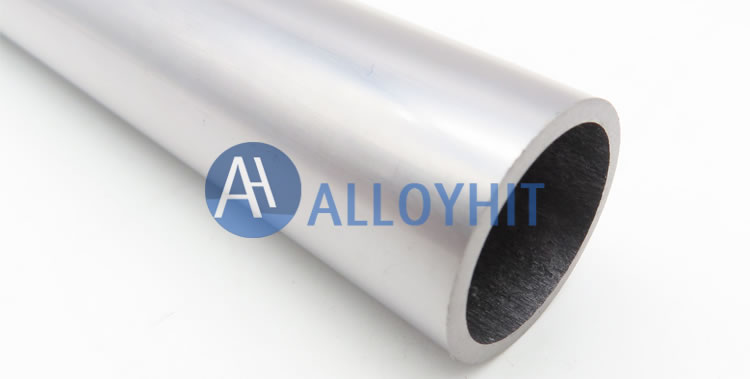
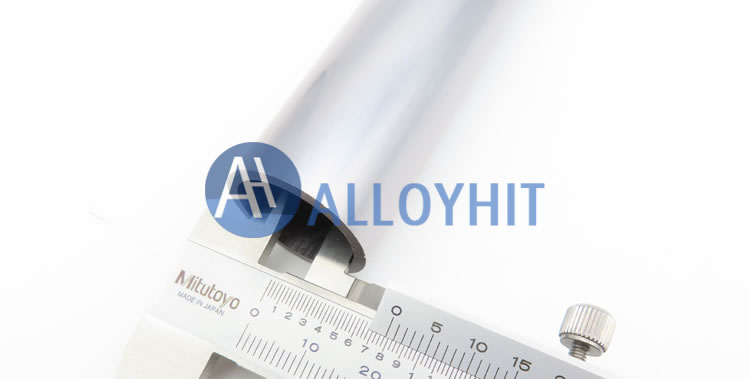
Welding performance of Ta10W Tube
Ta10W tubes must be welded in an inert gas (usually argon) protected environment or in a vacuum state.
Application of Ta10W Tube
Ta10W tubes have the characteristics of high melting point, corrosion resistance and good cold working performance, and are widely used in chemical, atomic energy, aerospace and other industries and high temperature technologies.
Chemical industry: Ta10W tubes are more resistant to high temperature and mineral acid corrosion than many other materials, and are mainly used in the manufacture of reaction vessels, heat exchangers, pipes and thermocouple tubes for chemical processes.
The thermal conductivity of Ta10W is more than twice that of titanium, more than three times that of zirconium stainless steel, and four times that of nickel-based alloys, and can be used in the manufacture of heat transfer components such as heat exchangers, condensers, bayonet heaters, helix diagrams, U-tube, etc.
Although the one-time investment cost of Ta10W is high, the long-term operation and maintenance cost is low, and the comprehensive cost performance is high.
Aerospace industry: Ta10W can be used as heat-resistant and high-strength materials for supersonic aircraft, rockets and missiles, as well as control and adjustment parts. Ta10W can be used at high temperature of 2500℃.
High temperature technology: Ta10W bar can be used to make supporting accessories and heaters of high temperature vacuum furnace, which is more stable and easier to process than tungsten and molybdenum. Ta10W pipes can also be used to make protective tubes for high temperature thermocouples.
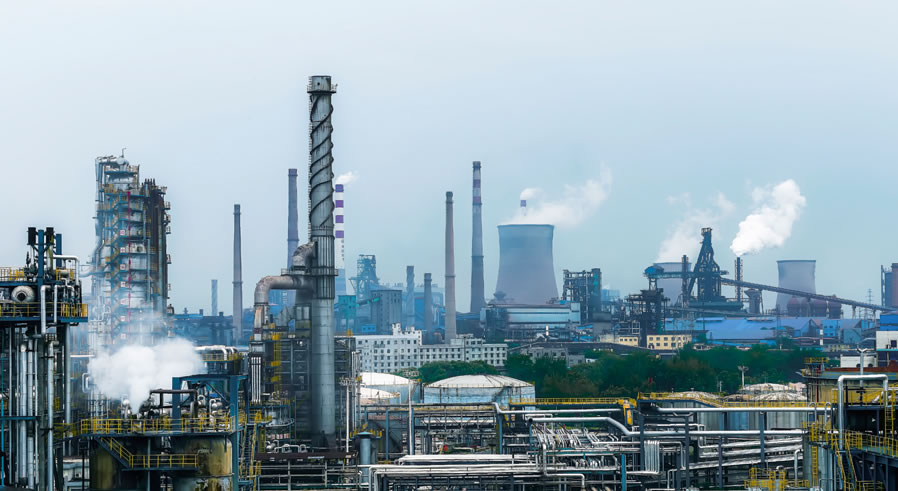

 +86 13120915623
+86 13120915623